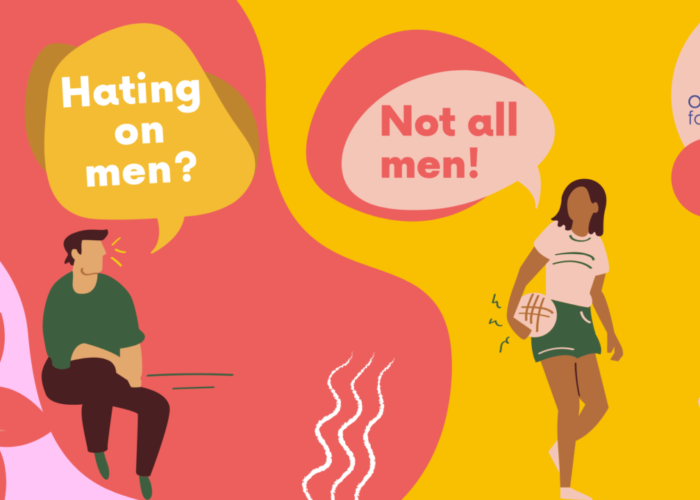“You know, you should just laugh along when someone cracks a joke that you consider ‘problematic’ or ‘sexist’. That would help you fit in better with others. People just don’t like socializing with someone with whom they always have to stay vigilant, you get what I mean?”
These ‘wise’ words from a friend initially bothered me a lot but I am not one to give up. I tried explaining my stance to him and, to my momentary delight, he understood, but then started insisting on the necessity to turn a blind eye to the casually sexist remarks and jokes that we hear around us all the time. “You cannot possibly change everything,” he said.
You cannot possibly change everything. As I pondered these words, I started thinking, quite indignantly, about the sexist statements and jokes I kept hearing around me all the time. How much of it had changed since I was little? People used to say things like “ছেলেটা এত চুপচাপ, একদম মেয়েদের মত” (The boy is so quiet. He is just like girls), এত দুর্বল তুমি, পুরো মেয়েদের মতো” (You are as weak as a girl), and “Don’t try to comprehend a woman’s mind: they happen to be extremely complicated” when I was little and, two decades down the line, I still hear these things uttered around me. Jokes implying, among other things, that women need a lot of time to get dressed, women spend a lot of time in shopping malls spending their husbands’ hard-earned money, women doubt their partners too much and so on, are cracked and laughed at very often. And of course, there are numerous popular jokes and songs that fuel rape culture (many of us are familiar with the song “চুমকি চলেছে একা পথে, সঙ্গী হলে দোষ কি তাতে,” a song romanticizing following a person/trying to accompany a person without their consent— in other words, stalking). So many things have changed around the world, technology has transformed and broken countless boundaries, old policies have been replaced by more progressive ones but one thing has remained constant: casual sexism.
Casually sexist comments and jokes are not harmless in any way. The way they are embedded in social and cultural fabrics— globally— is a matter of concern. People have said these things for centuries, many doing so without being aware of the power that language holds. When used properly, language has the ability to influence a person to do great things for the world around them. On the other hand, when it is used callously, it can go on to fuel everything that is harmful about patriarchy, toxic masculinity and misogyny.
When someone laughs at rape jokes or stays silent when a sexist remark is made, they are, intentionally or unintentionally, contributing to an environment in which casual misogyny not just exists but is also nurtured. As harsh as it may sound, silence, in this case, is the same thing as complicity. When we do not protest against casual sexism, we delay the process of bringing about change, the process of bringing sexism— and its disastrous effects— to an end. There have been, of course, strides towards the improvement of women’s rights all over the world, but we still have a long, long way to go and one of the things that, in my opinion, need to be focused on is language. The words we use. The things we write. The remarks we make. The jokes we crack.
This brings me back to what my friend said to me: You cannot possibly change everything. I would like to add another word to this sentence: singlehandedly. We cannot singlehandedly change anything, which is why we need to unitedly work towards putting casual sexism to an end. It is time we started being careful about the things we say and also making those around us aware of the fact that casual sexism is not harmless. If anything, it fuels the age-old custom of establishing the belief that women are inferior to men in every respect. I am not saying that everyone does or has done this intentionally. Many have merely contributed to the belief and the practices that have been passed down from one generation to the next by doing nothing to bring changes on a personal level. We have to understand that if a cycle has to be broken, someone needs to initiate it. Nothing happens overnight and nothing can be achieved if we do not take the first steps.
When someone around us makes a remark that is sexist in any way, it is important that we point it out to them immediately. Instead of staying silent and being unwittingly complicit, we need to take the steps that are needed to enlighten a person on the things they aren’t aware of. Conversations are of the utmost importance because on the path to making changes, echo chambers work as obstacles. When we get too comfortable in our bubbles, surrounded by like-minded people, repeating and hearing the same things over and over again, it becomes difficult for us to see the world around us with compassion and hence we lump people into groups, labeling them as ‘incels’ or ‘snowflakes’ or any of the numerous other words used to generalize people who have numerous qualities other than those we are alienating them for. This is an impediment to progress and change. This is why we need dialogues. Discourses. Conversations. Arguments. This is how we unlearn or help others unlearn something. By correcting people when they say something problematic and also taking responsibility when we do or say something similar, we can sow the seeds of the changes that we so desperately need.


